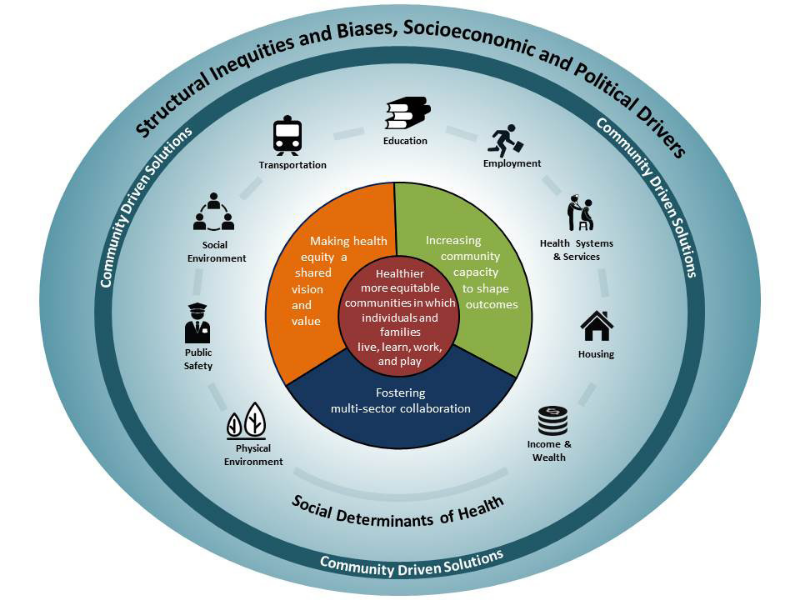Communities in Action: Pathways to Health Equity
Health equity is the state in which everyone has the opportunity to attain full health potential and no one is disadvantaged from achieving this potential because of social position or any other socially defined circumstance. Currently in the United States, the burdens of disease and poor health and the benefits of well-being and good health are inequitably distributed with negative consequences for the nation’s wellbeing, prosperity, and economic competitiveness. Although some aspects of a person’s health status depend on individual behaviors and choice, health is also shaped by community-wide factors, and research shows that problems like poverty, unemployment, low educational attainment, inadequate housing, lack of public transportation, exposure to violence, and neighborhood deterioration (social or physical) shape health and contribute to health inequities.
With support from the Robert Wood Johnson Foundation, the National Academies of Sciences, Engineering, and Medicine convened an ad hoc, expert committee to consider solutions that could be identified, developed, and implemented at the local or community level to advance health equity. In the resulting report, Communities in Action: Pathways to Health Equity, the committee identifies the major elements of effective or promising solutions and their key levers, policies, stakeholders, and other elements needed to be successful.
